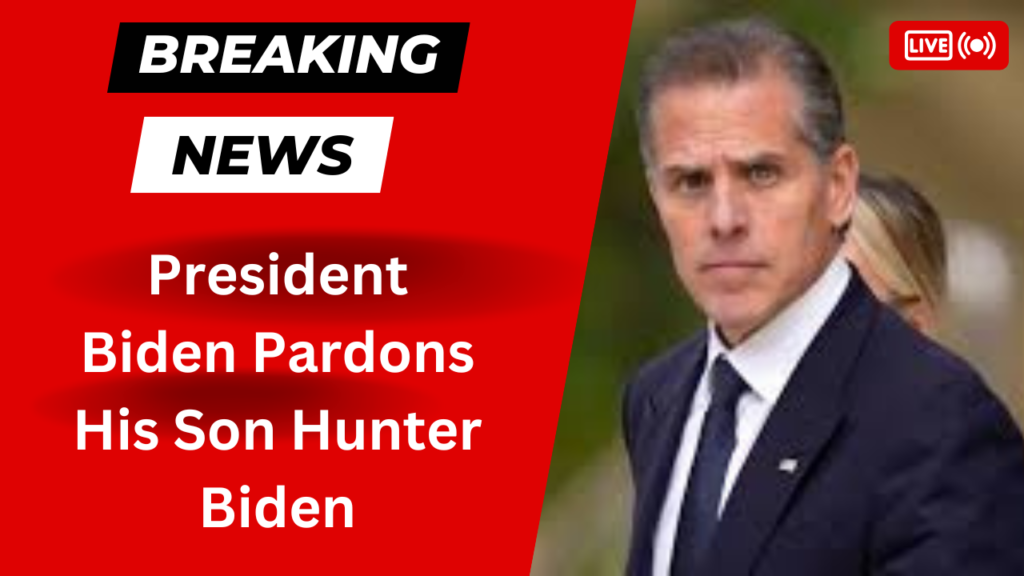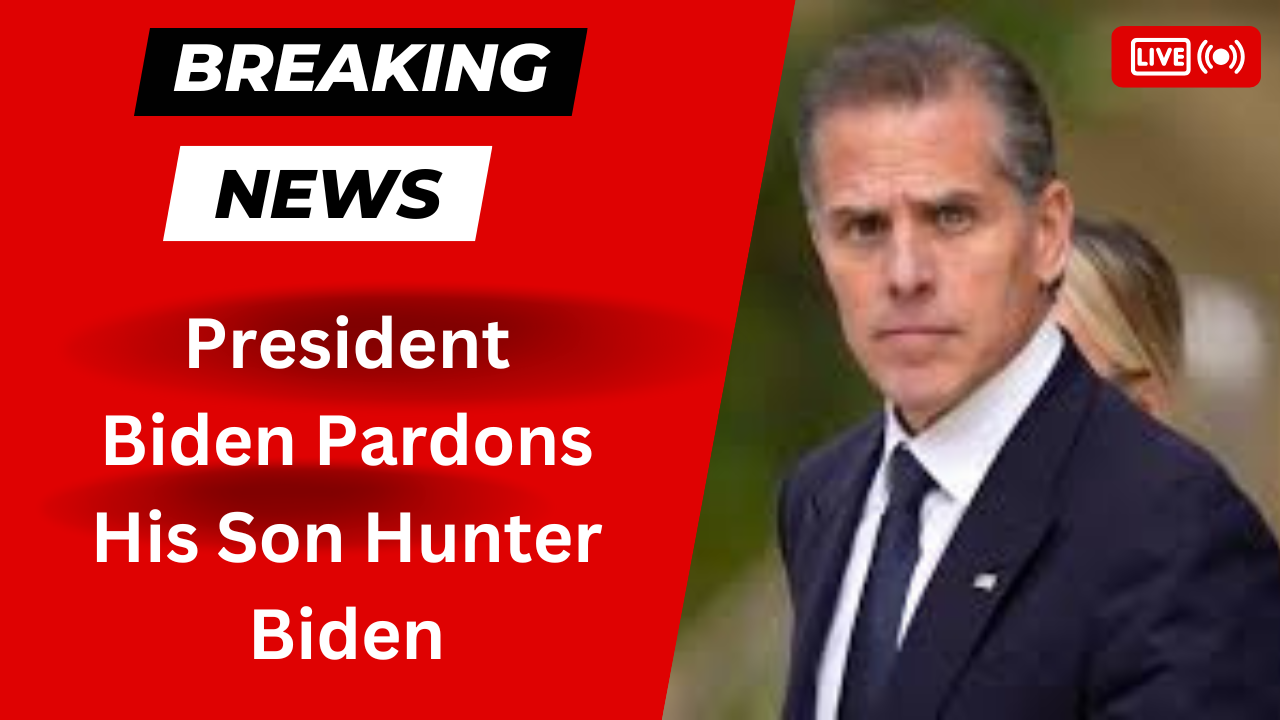
In a move that has stirred political debate across the United States, President Joe Biden has granted a pardon to his son, Hunter Biden, amidst ongoing legal challenges. The decision, announced in a climate of heightened political tension, has sparked reactions from all sides of the political spectrum. Here’s a closer look at what led to this decision and its potential implications.
Background on Hunter Biden’s Legal Troubles
Hunter Biden, a lawyer and businessman, has faced numerous legal investigations over the years, ranging from tax issues to allegations related to his business dealings. Critics have used these investigations as a political weapon against President Biden, questioning his impartiality and leadership.
The legal spotlight intensified in recent years, culminating in federal charges that included alleged tax violations and firearm-related offenses. Hunter Biden’s legal team argued these charges were politically motivated, further fueling an already polarized national discourse.
Why President Biden Issued the Pardon
The presidential pardon has long been a contentious tool in American politics. President Biden’s decision to pardon his son is rooted in two main considerations:
- Family Loyalty: President Biden has often spoken about the importance of family, and his decision reflects a deeply personal stance. As a father, he has stood by Hunter through public scrutiny and personal struggles.
- National Healing: The Biden administration framed the pardon as an effort to move past politically charged narratives, focusing instead on pressing national issues.
In his official statement, President Biden emphasized the importance of justice and fairness, noting that the pardon was not an admission of guilt but a means to quell divisive rhetoric.
Political Reactions
Supporters’ Viewpoint
Supporters argue that the pardon reflects President Biden’s commitment to justice and his willingness to shield his family from undue political attacks. Many Democrats have defended the decision, emphasizing the need to prioritize governance over partisan bickering.
Critics’ Perspective
On the other hand, critics see the move as a blatant misuse of presidential power. Republican leaders have accused President Biden of setting a dangerous precedent, undermining the rule of law by protecting family members from accountability.
The pardon has also reignited debates about the impartiality of the justice system, with opponents calling for stricter oversight of presidential powers.
Implications of the Pardon
For the Biden Presidency
The pardon has introduced new challenges for President Biden as he prepares for the 2024 election. While it may solidify support among his base, it could alienate swing voters who view the move as ethically questionable.
For Hunter Biden
The pardon effectively ends Hunter Biden’s legal battles, but his reputation remains a focal point for political criticism. His story continues to serve as a rallying point for discussions on privilege, accountability, and justice in America.
For Future Presidencies
This decision sets a precedent for how future presidents might use their pardon powers. Critics warn that it could lead to an erosion of trust in executive authority, while proponents argue it underscores the president’s constitutional right to act in extraordinary circumstances.
Conclusion: A Divided Nation Watches Closely
President Biden’s decision to pardon his son is a defining moment in his presidency, reflecting both his personal values and the complex dynamics of modern American politics. As the country grapples with this unprecedented move, the conversation surrounding justice, privilege, and political power remains more relevant than ever.
Whether you see the pardon as a compassionate act or a controversial overreach, one thing is clear: this moment will shape the legacy of President Biden and the future of American politics.


